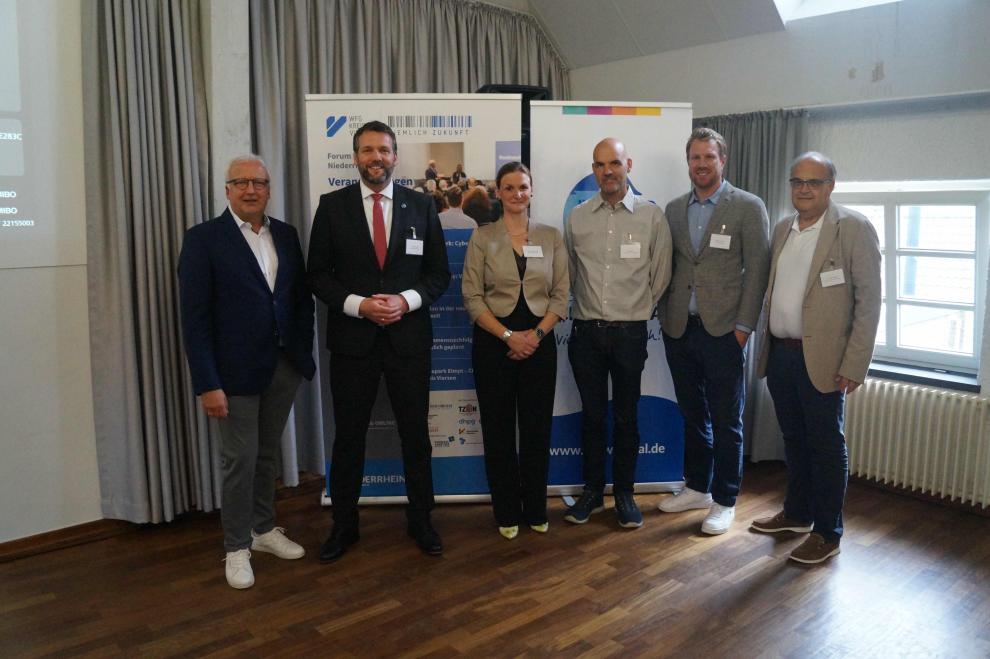The end of throwaway logic? Prof. Simone Pauling on the true dimension of the circular economy
In Germany, the concept of the circular economy is often reduced to a single element. Most people think of waste separation and recycling at the end of the product life cycle. Prof Dr Simone Pauling from Rhine-Waal University of Applied Sciences recently made it clear at the Forum Mittelstand Niederrhein that this is a clear abbreviation of a far more comprehensive concept. Her impulse: The circular economy is a systemic issue that begins long before the waste bin and must realign the entire value chain.
In a world whose resources are finite and whose ecological resilience is reaching its limits, the German focus on ‘end-of-pipe’ thinking appears increasingly inadequate. The challenge lies not only in the utilisation of what is often still unavoidable, but also in the intelligent redesign of production and consumption patterns that prevent waste from being produced in the first place, according to the tenor. This is where Prof Pauling's approach comes in.
Prof. Dr. Simone Pauling, Professor at Rhine-Waal University of Applied Sciences, combines academic research with international industry experience. Before taking up her professorship, she worked on the quality assurance and sustainability of global agricultural and food value chains and was also head of research at an international poultry processing group, where she was intensively involved in the implementation of innovative and sustainable solutions. Today, she conducts research at the interface of resource-conserving production, environmental and animal protection and fair value creation.
Her key message at the Forum Mittelstand im Kreis Viersen was that the circular economy requires a fundamental rethink that starts with product design, material selection and business model development. The aim is to establish ‘well thought-out cycles from the outset’ that expand and redefine established value chains. According to Pauling, this not only allows resources to be utilised more efficiently and costs to be saved, but also opens up new business areas - underpinned by innovative ideas and practical examples that provide the medium-sized companies present with concrete food for thought. Small and medium-sized companies in particular face the challenge of adapting such systemic changes. The agenda of the Forum Mittelstand Niederrhein for 2025, which addresses not only the circular economy but also current issues such as cyber security and the transformation of the world of work, underlines the realisation that sustainability is no longer a niche, but an ‘economic necessity’.
The vision of a genuine circular economy that recognises recycling as just one building block could thus become an important driver of innovation for the Lower Rhine region and beyond. A rethink that can ultimately strengthen not only the environment, but also the competitiveness of the location.

